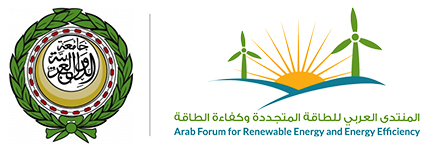League of Arab States, Arab Ministerial Council of Electricity
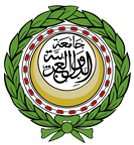 The Arab Ministerial Council for Electricity was established based on the Arab League’s Ministerial Council resolution 5394 in its regular session 101 on 23 March 1994. The Arab Ministerial Council for Electricity is composed of Arab Ministers› of Electricity and it convenes regularly every two years, during which an Executive Bureau is elected that includes 8 Arab Countries which convenes at least once during the calendar year.
The Arab Ministerial Council for Electricity was established based on the Arab League’s Ministerial Council resolution 5394 in its regular session 101 on 23 March 1994. The Arab Ministerial Council for Electricity is composed of Arab Ministers› of Electricity and it convenes regularly every two years, during which an Executive Bureau is elected that includes 8 Arab Countries which convenes at least once during the calendar year.
The Arab Ministerial Council for Electricity has completely amended its statute which was adopted by the Arab League›s Council Resolution 7199 in its regular session 133 on 3 March 2010. The new statute witnessed the creation of two committees, The first is an expert committee for Electricity mandated to follow-up on issues related to Electricity and the Pan-Arab interconnection grids, and the other, is the Renewable Energy and Energy Efficiency mandated to follow-up on renewable energy issues and efficient production and utilization of energy.
The Electricity Council aims to enhance and promote cooperation and coordinating efforts in the field of production, transmission and distribution of electricity in the Arab world by coordinating Arab policies in the fields of production, development, distribution of electricity energy while taking in consideration environmental concerns. The objective is to promote Arab projects aimed at connecting electricity grids across the Arab States to prepare for the launch of a common Pan Arab Market for Electricity. There is also an increasing interest in Renewable Energy and Energy Efficiency to reach diversification with energy sources in the Arab World. The Energy Department in the Arab League is the Technical Secretariat of the Arab Ministerial Council for Electricity.
Ministry of Electricity and Renewable Energy
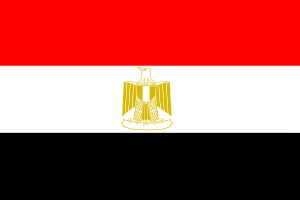 The Electric Energy is the back-bone and infrastructure for all life activities, not only agricultural, industrial and tourism activities but also, the development of the residential communities & agricultural reclamation. The first dedicated Ministry for the Electricity & Energy in Egypt was instituted in 1964. Then many decrees were issued by the state to regulate and specify its activities. The last decree was in 1974 and stated that the goal of the ministry is to provide the electricity to all consumers all over the country. And in order to full fill that obligation, the ministry has to:
The Electric Energy is the back-bone and infrastructure for all life activities, not only agricultural, industrial and tourism activities but also, the development of the residential communities & agricultural reclamation. The first dedicated Ministry for the Electricity & Energy in Egypt was instituted in 1964. Then many decrees were issued by the state to regulate and specify its activities. The last decree was in 1974 and stated that the goal of the ministry is to provide the electricity to all consumers all over the country. And in order to full fill that obligation, the ministry has to:
- Settle the general plan & energy generation, transmission and distribution using the high-tech and the latest scientific development and supervise the execution of such plan and follow-up the different activities concerning the electrical network.
- Suggest the electric energy prices for all different voltage levels and different usages.
- Supervise the study and execution of essential electrical projects.
- Publish the statistics and data relating to electric energy production & consumption.
- Provide the technical consultancies and services in the electric fields to Arab countries and all others.
The Economic and Social Commission for Western Asia (ESCWA)
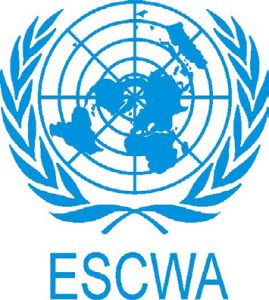 The Economic and Social Commission for Western Asia (ESCWA) was established on 9 August 1973 as one of the five commissions created by UN to fulfill the socio-economic goals set out in UN Charter. It comprises 17 Arab Member Countries (MCs); Bahrain, Egypt, Iraq, Jordan, Kuwait, Lebanon, Libya, Morocco, Oman, Palestine, Qatar, Saudi Arabia, Sudan, Syria, Tunisia, United Arab Emirates and Yemen. ESCWA provides a framework for the formulation and harmonization of sectoral policies for MCs, a platform for congress and coordination, a home for expertise and knowledge, and an information observatory. ESCWA activities are coordinated with the divisions and main offices of the Headquarters of the United Nations, specialized agencies, and international and regional organizations, including the League of Arab States and its subsidiary bodies, and the Gulf Cooperation Council.
The Economic and Social Commission for Western Asia (ESCWA) was established on 9 August 1973 as one of the five commissions created by UN to fulfill the socio-economic goals set out in UN Charter. It comprises 17 Arab Member Countries (MCs); Bahrain, Egypt, Iraq, Jordan, Kuwait, Lebanon, Libya, Morocco, Oman, Palestine, Qatar, Saudi Arabia, Sudan, Syria, Tunisia, United Arab Emirates and Yemen. ESCWA provides a framework for the formulation and harmonization of sectoral policies for MCs, a platform for congress and coordination, a home for expertise and knowledge, and an information observatory. ESCWA activities are coordinated with the divisions and main offices of the Headquarters of the United Nations, specialized agencies, and international and regional organizations, including the League of Arab States and its subsidiary bodies, and the Gulf Cooperation Council.
The Sustainable Development and Productivity Division (SDPD), is one of the seven ESCWA substantive divisions, which seeks to achieve integrated and sustainable management of natural resources, with emphasizes on energy, water,food and environmental policies. SDPD activities related to energy issues are focusing on sustainable energy policies and strategies that enhance a balanced and diversified energy mix, through energy efficiency measures, renewable energy utilization and access for all to reliable and modern energy services. Recalling the UN Secretary General’ initiative on “Sustainable Energy 4 All by 2030”, ESCWA highlights the importance of the anticipated Small and Medium Enterprises (SMEs) role in supporting the transition to green energy through promoting environmentally appropriate technologies in the MCs.
ESCWA‘s energy programs are conceived and implemented through ongoing intergovernmental consultations with the MCs via ESCWA’s Committee on Energy, which was established in 1995 which prioritizes and guides ESCWA program of work in the field of energy with the aim of setting up the regional priorities related to sustainable energy issues and aspects.
For further information, ESCWA website: www.escwa.un.org
The Regional Center for Renewable Energy and Energy Efficiency (RCREEE)
 The Regional Center for Renewable Energy and Energy Efficiency (RCREEE) is an independent not-for-profit regional organization which aims to enable and increase the adoption of renewable energy and energy efficiency practices in the Arab region. RCREEE teams with regional governments and global organizations to initiate and lead clean energy policy dialogues, strategies, technologies and capacity development in order to increase Arab states’ share of tomorrow’s energy.
The Regional Center for Renewable Energy and Energy Efficiency (RCREEE) is an independent not-for-profit regional organization which aims to enable and increase the adoption of renewable energy and energy efficiency practices in the Arab region. RCREEE teams with regional governments and global organizations to initiate and lead clean energy policy dialogues, strategies, technologies and capacity development in order to increase Arab states’ share of tomorrow’s energy.
Through its solid alliance with the League of Arab States, RCREEE is committed to tackle each country’s specific needs and objectives through collaborating with Arab policy makers, businesses, international organizations and academic communities in key work areas: capacity development and learning, policies and regulations, research and statistics, and technical assistance. The center is also involved in various local and regional projects and initiatives that are tailored to specific objectives.
Having today with 17 Arab countries among its members, RCREEE strives to lead renewable energy and energy efficiency initiatives and expertise in all Arab states based on five core strategic impact areas: facts and figures, policies, people, institutions, and finance.
RCREEE is financed through its member state contributions, government grants provided by Germany through the German Development Cooperation (GIZ), Denmark through the Danish International Development Agency (DANIDA), and Egypt through the New and Renewable Energy Authority (NREA). RCREEE is also financed through selected fee-for-service contracts.
Energy Efficiency in the Construction Sector in the Mediterranean
 Our Mission: MED-ENEC’s mission is to promote the use of Energy Efficiency (EE) solutions and Renewable Energy (RE) technologies in the building sector and help develop the related industrial and service activities in our Mediterranean Partner Countries.
Our Mission: MED-ENEC’s mission is to promote the use of Energy Efficiency (EE) solutions and Renewable Energy (RE) technologies in the building sector and help develop the related industrial and service activities in our Mediterranean Partner Countries.
Our Priority : We support national partners in the southern and eastern Mediterranean as they seek to improve policies and framework conditions that help increase the use of EE solutions and RE technologies.
What we do:
- Support the League of Arab States in the promotion of the Arab Energy Efficiency Guideline and its adoption by the member states.
- Support governments of our partner countries in the development and implementation of their National Energy Efficiency Action Plans(NEEAPs).
- Set up Energy Efficiency Building Codes and guidelines and draw up action plans and road maps for national implementation.
- Provide customized technical assistance to our partner countries in promoting energy efficiency measures
Stakeholders’ capacity building - Promote energy efficiency in buildings and raise awareness on relevant
How we work: MED-ENEC is funded by the European Union and is implemented by a consortium of three companies including ADEME and ECOFYS and lead by GIZ.
We work in partnership with state authorities through our national focal points and in cooperation with regional and international energy, development and funding institutions.
Deutsche Gesellschaft für Internationale Zusammenarbeit (GIZ) GmbH
 We provide services worldwide in the field of international cooperation for sustainable development. GIZ has over 50 years of experience in a wide variety of areas, including economic development and employment, energy and the environment, and peace and security. The diverse expertise of our federal enterprise is in demand around the globe, with the German Government, European Union institutions, the United Nations and governments of other
We provide services worldwide in the field of international cooperation for sustainable development. GIZ has over 50 years of experience in a wide variety of areas, including economic development and employment, energy and the environment, and peace and security. The diverse expertise of our federal enterprise is in demand around the globe, with the German Government, European Union institutions, the United Nations and governments of other
countries all benefiting from our services. The German Federal Ministry for Economic Cooperation and Development (BMZ) is our main commissioning party, but we also work closely with the private sector, fostering successful interaction between development policy and foreign trade.
All these commissioning parties trust GIZ to generate ideas for political, social and economic change on their behalf, to develop these into concrete plans and to implement the envisaged change processes. Since we are a public-benefit federal enterprise, German and European values are central to our work. This makes us a reliable service provider that people can trust. Together with our partners, we work to deliver flexible and effective solutions that offer people better prospects and sustainable improve their living conditions.
The registered offices of GIZ are in Bonn and Eschborn. In 2014 our business volume exceeded two billion euros. Around 70 per cent of our local workforce of 16,410 people are national personnel working in over 130 countries. In our capacity as a recognized sending organization, we currently have 785 development workers in action in partner countries. In addition, CIM, a joint operation of GIZ and the Federal Employment Agency, placed around 1,000 integrated and returning experts with local employers abroad in 2014 while providing them with financial support and advisory services.
Egyptian Electric Utility and Consumer Protection Regulatory Agency (EgyptERA)
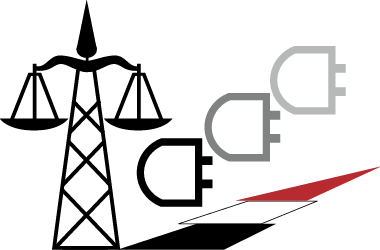 Vision: Facilitating affordability and sustained access of electricity services with fair and transparent regulations enhancing the progress of the country without compromising the environment.
Vision: Facilitating affordability and sustained access of electricity services with fair and transparent regulations enhancing the progress of the country without compromising the environment.
Mission: Regulating and monitoring the Egyptian electricity market, securing electricity supply and promoting investments while protecting consumers’ rights.
- Setting non-discriminatory and transparent regulation, rules and procedures for free competition as well as performance standards
- Issuing permits and licenses in an efficient and non-biased way
- Stimulating a competitive market
- Setting tariffs
- Providing incentives for operating efficiency and quality of services
- Monitoring and auditing the performance of the electricity generation, transmission and distribution
- Protecting consumers’ rights while respecting communities and the environment
- Setting the rules & procedures regarding consumer rights (incl. consumer complaints reviews and dispute settlements)
- Ensuring availability of supply to users at the most equitable prices while conserving the environment
- Ensuring consumers understand their rights and are satisfied
- Promoting renewable energy sources, energy conservation (energy efficiency measures and applications) and research and development, incl. rules and procedures as well as review of the strategy and implementation.
Arab Electricity Regulators Forum (AERF)
 The AERF is a consultative encounter between the authorities, agencies and individuals entrusted to regulate and restructure the electricity industry in addition to developing the rules for monitoring and controlling electric services at the highest quality and lowest cost.
The AERF is a consultative encounter between the authorities, agencies and individuals entrusted to regulate and restructure the electricity industry in addition to developing the rules for monitoring and controlling electric services at the highest quality and lowest cost.
Vision: The forum is to become the main platform in the Arab Region for exchanging knowledge and regional experiences and the methods of institutional development. This is in addition to realizing consistency in the regulatory and technical practices at both regional and international levels in order to reach sustainable development in electricity sector and a full-scope service in the region at the highest quality and reasonable cost.
The Message: The forum is to assist the regulatory bodies of electricity sector and the Arab policy makers by providing models for systems and study cases for transparent procedures in order to achieve sustainable development in the electricity sector. The Forum also is to seek coordination between the members’ positions in order to adopt unified stances in international forums.
Objectives:
- Improving regulation in electricity sector at both national and regional levels in the Arab states.
- Enhancing and developing the performance of the Arab Electricity regulators.
- Promoting and developing cooperation and exchange of researches and experiences between the members of the Forum.
- Developing and exchanging main indicators of performance in addition to technical indicators.
Members
- Representative of Saudi Arabia.
- Representative of Jordan.
- Representative of Qatar.
- Representative of Algeria.
- Representative of Sudan.
- Representative of Lebanon.
- Representative of Egypt.
